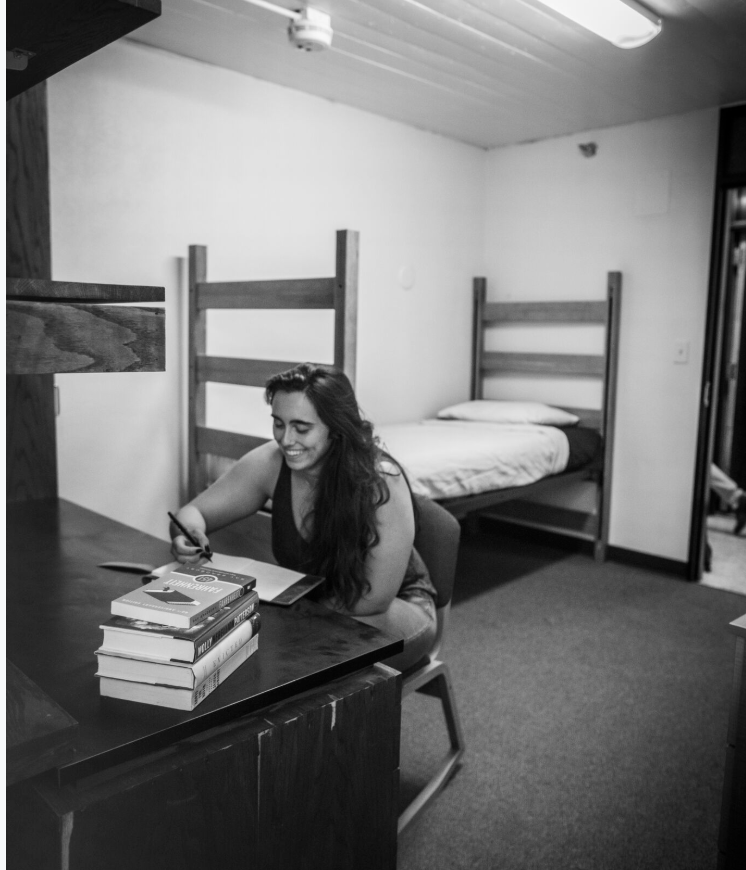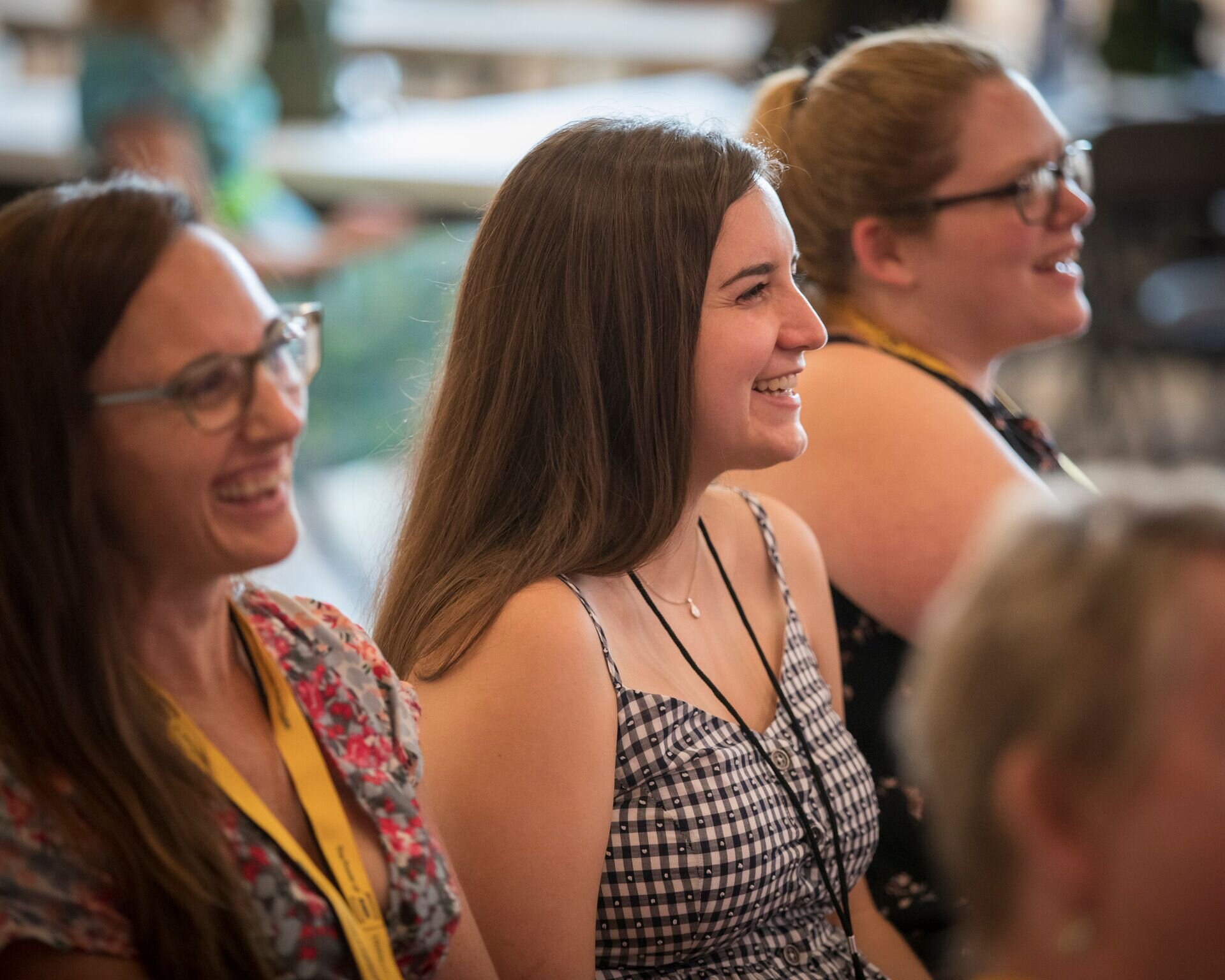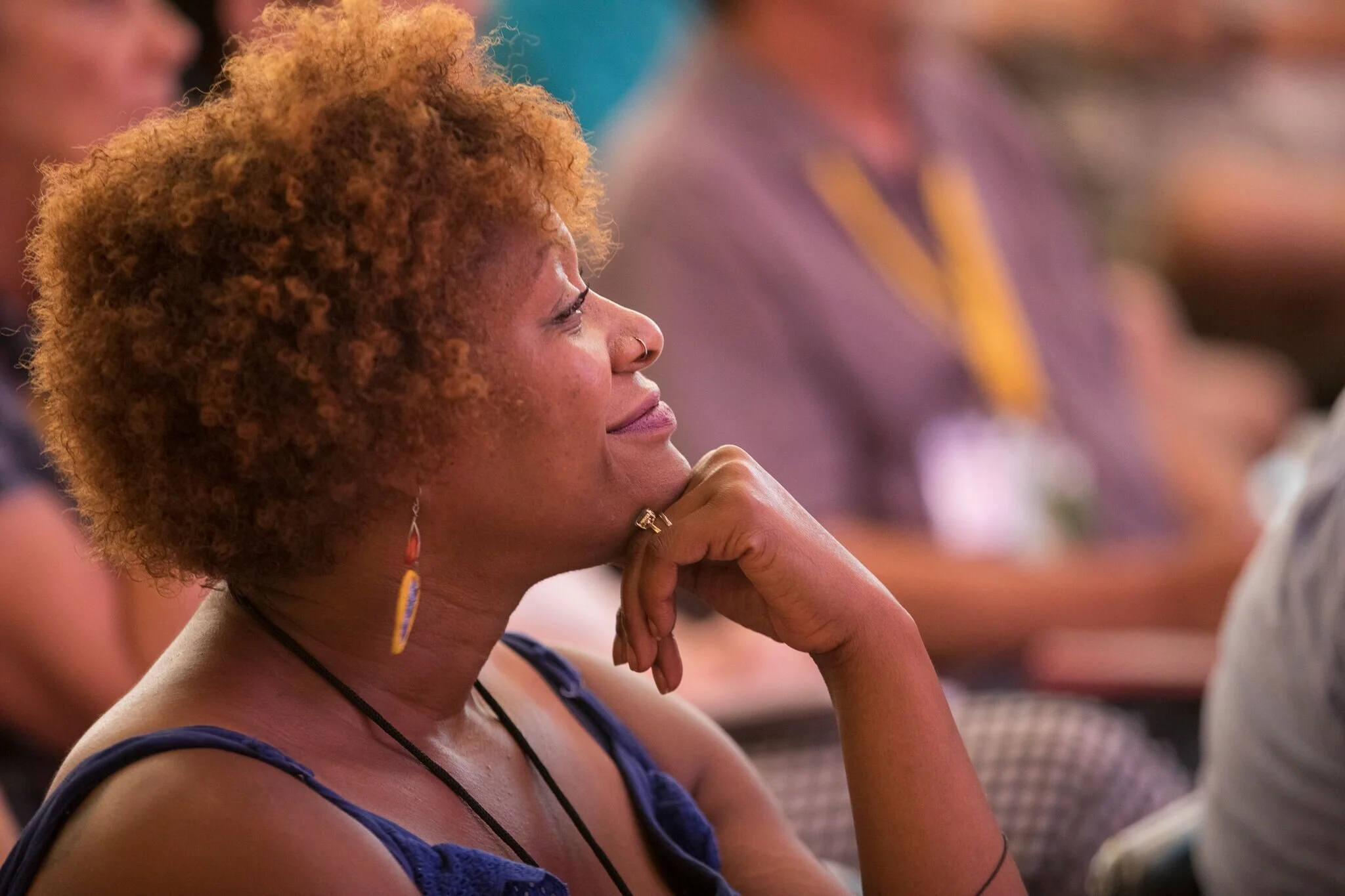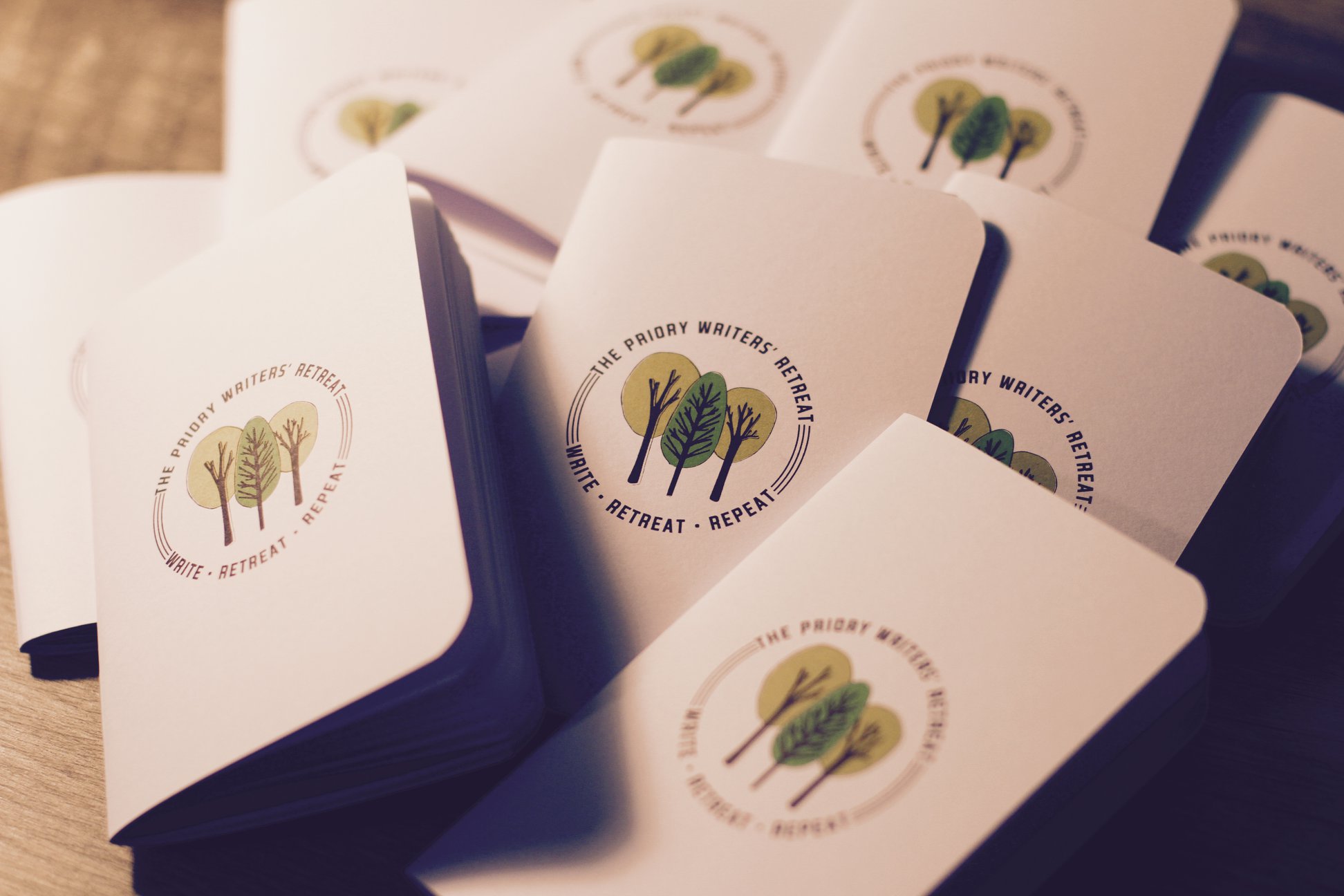B.J. Hollars
Our first summer at The Priory Writers’ Retreat was nothing short of magical. In no small part, this was due to the perfect combination of committed writers, engaging writers-in-residence, and a comfortable setting. But in the spirit of perpetual improvement, over the past six months we’ve listened to participant feedback and worked hard to make every suggested adjustment we can to the facility. Thankfully, most of these fixes were quick and easy! And they’ll make a world of difference!
We’re pleased to have partnered with UW-Eau Claire’s Camps and Conferences Team to bring these changes to next year’s retreat.
1.) A New and Improved Menu. Food matters! And because food fuels the work, we want to be sure to offer participants the very best. This summer, we’ve dramatically overhauled our menu while keeping costs relatively the same. Participants will now enjoy three hot meals a day.
Breakfasts include a variety of the following: croissants, hashbrowns, crispy bacon, sausage, scrambled eggs with cheddar, Garden vegetable quiche, mushroom and spinach quiche, donuts, breakfast breads, and more!
The lunch menu includes Chimichurri Flank Steak Sandwich, Buffalo chicken wrap boxed lunch, Spicy Italian Baguette Boxed Lunch, and cookies, chips and fruits.
Thursday’s dinner (“Little Italy”) includes Caesar Salad with Homemade Croutons, Vegetarian Antipasto Platter, Assorted Rolls and Butter, Sautéed Fresh Zucchini, Pasta Bar with Spaghetti, and Penne Pasta with Marinara Sauce and Pesto Cream Sauce, Home-Style Meatballs in Marinara Sauce, Traditional Chicken Cacciatore, Tiramisu, and more.
Friday’s dinner (“Asian Fusion”) features Asian Salad, Sticky Rice, Garlic Lemon Ginger Broccoli, Vegetable Lo Mein, Cilantro Breast of Chicken, Teriyaki Glazed Salmon Filet, Fortune Cookies, Coconut Lemon Almond Gourmet Bar, and more.
Saturday’s dinner will be on your own in downtown Eau Claire—with plenty of choices for every palate.
Vegetarian options are available. And do let us know about any allergies!
2.) Craft Coffee Brought To You Bright and Early. While paper and pen may be the traditional tools of the writer’s trade, let’s never, ever overlook the power of coffee. Good coffee. Great coffee. Strong coffee. The kind of coffee that will snap your eyelids back and send you soaring to the keys. This summer, participants can enjoy 6AM freshly-brewed coffee courtesy of Shift Cyclery and Coffee Bar—Eau Claire’s premiere shop. And enjoy your cup of joe in your very own, brand new Priory mug! You can even take it with you as our gift to you.
3.) New and Improved Classroom Space. While there are no shortage of writing nooks at The Priory, last summer we did struggle to find ideal classroom spaces for all of our courses. But not anymore! This summer, a new classroom will be created to ensure that each of our four courses can have its own intimate space. In addition to contributing to the overall audience, this additional space will also help manage acoustics.
4.) Decorous Occasion Social Hour. Last year we were thrilled to have an evening of live music on Friday night. This year, we’re excited to have MORE live music. But rather than a sit-in-your-seats concert, this year it’ll be what we’re calling our “Decorous Occasion Social Hour.” Following a lovely dinner, we’ll all gather in the main hall for live music, socialization, networking, and a cool drink of your choice (non-alcoholic options available, of course.)
5.) Upgraded Towels, Sheets and Linens. Your comfort matters. This summer, we’re pleased to offer all our participants upgraded towels, bedsheets and linens. Additionally, extra mattresses are available upon request. Having said that, our on-site lodging participants should be aware that our rooms are of a dorm room quality. Each private room has a desk and twin bed. Participants are encouraged to bring whatever might improve your comfort: books, art, additional bedding, etc. Or, if you prefer, you can stay off-site. In short, there are many options for your comfort.
This is only the beginning. Over the next few months we’ll continue to work hard to curate the perfect experience for you. When you’re at The Priory, your primary responsibility is to give yourself fully to your craft. Let us ease your mind of the day-to-day tasks. You’re here as our guest. You’re here for your work. Applications open February 1!





















































